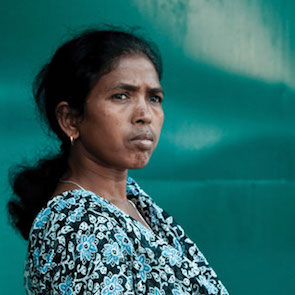
The news this week from Chhattisgarh, India, is tragic. At latest count, 15 women have died in a `sterilization camp’. Fifty others are in hospital, with at least 20 in critical condition. At first the operations were widely described as `botched.’ After only preliminary investigations, the response moved from `botched’ to `criminal’ and `corrupt’. Finally, the reporting has landed on how Indian this all is. It’s not. Forced sterilization of women is a global phenomenon, actually a global campaign, and it needs to be addressed, immediately. The women, all poor, of Chhattisgarh are part of a global public policy in which women’s bodies are, at best, disposable and, more often, detritus.
Consider the last two months from the perspective of forced sterilization of women.
In November, the Namibian Supreme Court upheld a 2012 High Court decision that health workers sterilized HIV-positive women without their consent. Switzerland was called upon to consider compensation for survivors of its “contract children” program, which included forced sterilization of girls.
In October, Belgium faced UN scrutiny, under the CEDAW procedures, concerning forced sterilization of women living with disabilities. Women in Peru complained that, eighteen years after the formal cessation of forced sterilization programs, they have seen no justice. Promises, yes. Justice, no. North Carolina began paying compensation to survivors, poor and minority women, of its forced sterilization program. After much debate, the California legislature passed a bill formally banning the forced sterilization of women prisoners.
And this doesn’t take into account ongoing inquiries and discussions of forced sterilization of Aboriginal and Indigenous women across the Americas as well as Australia. This list is not even the tip of the global iceberg.
And so the charge of coercion, as raised by Kerry McBroom, director of the Reproductive Rights Initiative at the Human Rights Law Network in New Delhi, comes as no surprise. That the coercion flows through cash incentives to desperately poor women rather than cudgels and batons is merely a facet of the current world order. There is no informed consent in so-called sterilisation camps. There are quotas, cash incentives, and the occasional pile up of women’s corpses. Monetizing and incentivizing the assault on women’s bodies is key to the modern democratic nation-state, thanks to the Washington Consensus.
Along with local investigation into the individual cases, as in Chhattisgarh, what is called for is immediate global action to change the global public policy that trashes women’s bodies and lives. The global state of forced sterilization of women is dire, and it’s expanding. It’s past time to address the global crisis of forced sterilization of women: impose an immediate moratorium on all programs of mass sterilization, everywhere; codify just compensation for survivors of such programs; pay just compensation to survivors of such programs; and establish serious global structures to enforce informed consent. Remember, Chhattisgarh is everywhere.
(Photo Credit: Indian Express)
